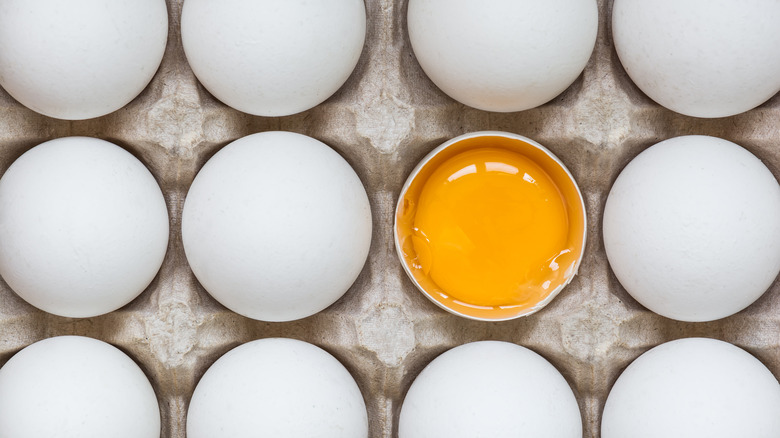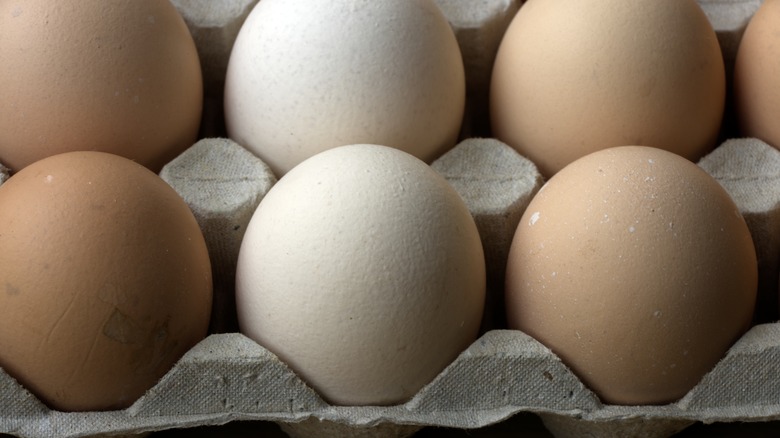Is It Safe To Eat Cracked Eggs?
Raw eggs are delicate symbols of fragility, and their one-use-only shells should be handled with care. Like the plastic sheet on a new phone screen, once you've cracked the egg or peeled off the plastic there's no going back. But what if, as you pry the new phone from its box or swing open a fresh carton, the plastic sheet is slightly peeling off already or you see an egg that's cracked?
Your phone will most likely be fine, but that egg may not be anymore.
According to the CDC, the danger of chicken meat and eggs is the infamous salmonella, which is a bacteria that can do some serious damage when ingested by humans. According to the USDA, if bird droppings get on the egg, salmonella can spread from the animal's intestinal tract onto the eggshells, and if some part of the egg's white or yolk comes into contact with the shell, the salmonella can spread quickly. To prevent this spread, eggshells are tough and completely sealed. They also have a thin membrane right underneath the shell to act as extra protection. However, if your egg's shell is cracked and these natural barriers compromised, it may be better to get rid of your egg entirely.
When are cracked eggs okay to eat?
The USDA warns against buying cracked eggs and recommends inspecting every egg before purchasing them. If your eggs crack on the way home from the grocery store, just transfer the egg to a clean container and throw the shell away. This will keep for up to two days. If the egg is cracked while cooking or some portion of the egg white or yolk comes into contact with the shell, you should be fine, as salmonella spread is very low during cooking.
According to Eat or Toss, the kind of break in your eggshells is also important. If the crack is very thin and your egg is not leaking, you should cook the egg thoroughly (salmonella is killed instantly at 165 F or over several minutes at 145 F), but the risk of infection is very low. If the crack in your egg is significant and it appears that the membrane has also been breached, your safest bet will be to throw the egg away. Remember, salmonella is no joke, so make sure to handle your eggs with care.

